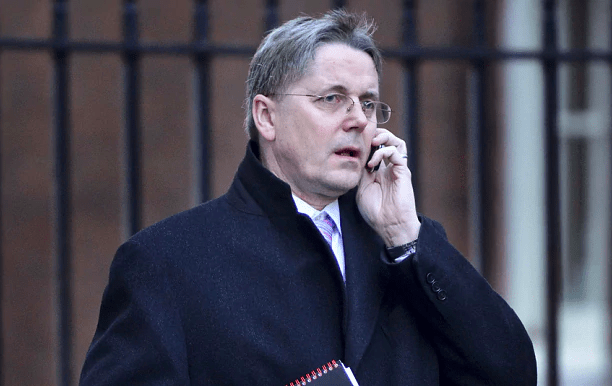I am not a conspiracy theorist. But if I were, I might conclude that the prime minister’s speech in Florence represents the victory of Whitehall, led by the cabinet secretary Sir Jeremy Heywood, over the arch Brexiteers in the cabinet. Because although it is spectacularly short on detail, it does not represent a clean break with the EU. And it seems to propose some kind of associate membership of the EU for Britain as the long-term status quo.
May proposes a new trading relationship with the EU that is neither membership of the European Economic Area and the single market or a conventional free trade arrangement. She wants our future economic relations with the continent to be more intimate than the latter and a bit less intimate than the former.
And she thinks she can get what she calls “an ambitious economic partnership” because our rules and regulations are currently wholly converged with those of the rest of the EU (by definition, since we are still an EU member – in case you had forgotten). She recognises that over time we and the EU will want to move in different directions in respect of rules and regulations. So to prevent either side shifting the balance of “rights and obligations” in the commercial and economic relationship in an unfair way, she recommends the creation of some kind of supranational dispute-resolution process.
Quite what or who this new arbiter would be she does not say, other than that it could neither be the European Court of Justice or British courts.
But plainly this would represent not the great plan of the Brexiteer purists to shift sovereignty from Brussels to Westminster, but it would be a shift of power from Brussels to some other extra-territorial body.
The question for Boris Johnson, Michael Gove and Liam Fox is why lawmaking on the moon for example – or a lunar arbitration panel that ruled our own new laws as illegal and therefore impinged on our commercial and economic freedoms – would be less noxious than law-making by the collective members of the EU.
Nor would that be the only erosion of British sovereignty. If the prime minister’s proposed new treaty with the EU on security, law enforcement and criminal justice means anything it would force the UK to take on new binding obligations to protect the EU from criminal and terrorist threats and the predation of malign foreign nations.
That may well be a good thing. But it is not “taking back control”, to coin the Brexiteering slogan of choice. Then of course there is her request for a two-year period of transition, which in effect would turn us till 2021 into a non-voting member of the EU.
She also held out the prospect of paying substantial sums in perpetuity to the EU for “those specific policies and programmes which are greatly to the UK and the EU’s joint advantage, such as those that promote science, education and culture – and those that promote our mutual security”.
All in all this looks like a Whitehall coup to try and obtain what British officials have always sought – which is a new category of EU membership, what would be called “associate” status if the EU was a club.
To be frank, having now heard Mrs May’s speech I have a bit more understanding why Johnson cut up rough last weekend and am a bit more surprised that he has chosen to remain at her side – and indeed to serve as cheerleader in her audience today.
This is classic Whitehall fudge. And I suspect it will end up alienating both the rest of EU and much of May’s own party.
For the EU, there is a hugely important question of principle at stake here, which is whether it wishes to set the precedent of inaugurating a third circle of partial members, led by the UK.
Maybe May’s offer to buy this partial membership by stumping up the £20bn or so we already promised to pay into EU coffers till 2021 will seduce the Merkels, Macrons and Junckers. But I slightly doubt it, when their revealed priority is to forge deeper and closer bonds between existing members, and discourage further fragmentation of the 27.
As for the Johnsons, Goves and Foxes, I slightly assume they are backing the PM for now because they assume her plan is bound to flop, and that therefore we are heading for the no-deal exit.
Robert Peston is Political Editor of ITV News. This article was originally published on his Facebook page







Comments